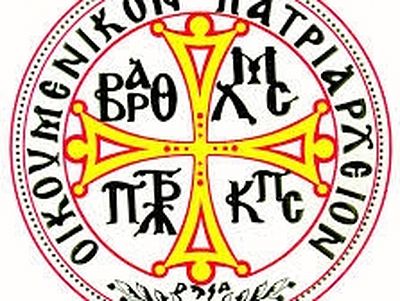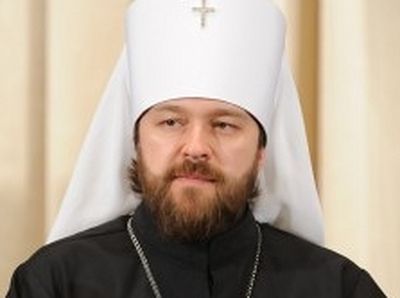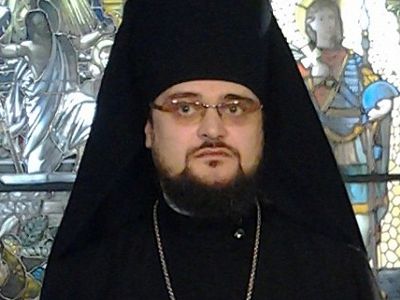On this day in 1596, the Unia of Brest was signed in what is now Belorussia, giving birth to the “Greek Catholic Church” in Western Ukraine. At the time these lands were under Polish-Lithuanian rule, and there was a general plan to bring all Orthodox subjects into the Latin Church of their Polish sovereigns. But despite various forms of pressure and persecution, most of the Russians in these lands held to their Orthodox faith. The next step in this Latin crusade would be the Unia. The damage continues to this day, as professor of canon law and Church history Archpriest Vladislav Tsypin points out.
One of the most hackneyed clichés in the Western media is, “European values”. Even when the term first appeared it was clear that these values do not correspond to what we are accustomed to calling Christian values—Christian anthropology, or Christian ethics. However, twenty years ago, many were still under the illusion that these “values”—European and Christian—although not identical, were nonetheless compatible. The processes of recent years—social as well judiciary—have convinced even the most magnanimous Christians that these values have different aims. Because of the actual antagonism between the two, it has become impossible for a Christian without splitting his conscience, without something akin to schizophrenia, to sincerely adhere to the infamous “European values”. Any imitation of such adherence in public spheres is only viable out of ulterior political motives, pragmatic diplomacy, or petty politicking.
Be not deceived: neither fornicators, nor idolaters, nor adulterers… nor covetous… nor extortioners, shall inherit the kingdom of God (1 Cor. 6:9-10). Wives, submit yourselves unto your own husbands, as unto the Lord (Eph. 5:33). In a number of Western countries it has become punishable crime to publicly cite these passages—something that never happened even during the most difficult periods of atheistic repressions against the Christian Church in the twentieth century. And in those Western countries where Biblical commandments are not yet being punished, they are already being ostracized by the mass media.
Feeling under attack as never before, Christians who are sincerely dedicated to the Gospel teaching and are not looking for forbidden compromises with the spirit of the world that wars against them cannot but long for solidarity against aggression from the world that lies in wickedness (1 Jn. 5:19). Called to unity are Christian confessions that have not renounced the fundamental Gospel ethics, as did the American Episcopalians who publicly fought for nationwide same sex marriage (and achieved their goal). Especially in need of this solidarity are those Churches that have preserved apostolic succession. This relates in full measure to the Orthodox and Roman Catholic Churches.
We are talking here precisely about solidarity, common action, and agreeing on a position. A forced search for confessional unity and Eucharistic communion, without which the former cannot happen and which looks only utopic in the foreseeable future, is more likely to create additional complications in the search for solidarity than stimulate them. We know that in theological matters, as in scientific discussions, when the conversation turns to the search for truth there is no place for compromise. Therefore, attempts to reach mutually acceptable dogmatic formulas can evoke—and do evoke—among zealous Christians the suspicion that those who conduct such theological dialogues in this vein are in fact indifferent to the truth and are potentially capable of making compromises at its expense. (We are talking, of course, about the Churches’ official dialogue, and not about mutually beneficial discussion of theological problems at academic conferences.)
One good example of fraternal bonds between Christian Churches with apostolic succession but without Eucharistic communion is the relationship between the Russian Orthodox Church and the Armenian Apostolic Church, which are not burdened by mutual suspicion. However, even though the theological differences between the Orthodox Church and the Roman Catholic Church are no greater than those that separate Orthodoxy from the family of non-Chalcedonian Eastern Churches to which the Armenian Church belongs, the history of Orthodoxy and Catholicism is burdened with sorrowful experience, begun catastrophically by the fourth crusade.
In our times, the most painful thorn in the relationship between the Orthodox and Catholic Churches, preventing them from developing closer ties, is the Uniate factor. It would seem that the Unia [also called the Greek Catholic Church. —Ed.], which uses the Eastern Rite but is under the jurisdiction of the Roman Pope, could serve as a bridge between the Orthodox and Catholic worlds. But everyone knows that the reality directly contradicts any such abstract illusions. The reason for this hides primarily in the very origins of the Unia, which, if we call a spade a spade, made its appearance in the world as one of the most malignant manifestations of aggression against Universal Orthodoxy. This applies equally to the Unia of Lyons in 1274 and the Unia of Florence in 1439; and, finally, to the ill-fated conspiracy that produced the Unia of Brest in 1596.
The Uniate scheme of 1596 was complicit in arrogant, contemptuous deceit against the uneducated people, who were persuaded to think that the Unia would mean only a change of jurisdiction and that under the Unia not only the rites but also the faith would remain as they were—Orthodox. In actual fact this was no more than a cynical fraud in which the bishops of Western Rus’, betrayed their flock, traded Orthodoxy for the pottage of lentils promised them by the senate of the Polish-Lithuanian Commonwealth, and secretly signed the Creed that included the Filioque. And this fraud did not remain a mere historical fact, or just one of the historical sins of the Unia. Its consequences forever determined the moral face of Uniatism. The genesis, or origin of a phenomenon always influences its nature; figuratively speaking, it makes up its genetic code. From the Brest-Litovsk conspiracy to our own day, this code of Uniatism remains unchanged at its foundation. Uniatism appeared out of the Vatican’s proselytism projects and the political schemes of the myopic authorities of the Polish-Lithuanian Commonwealth—myopic because the introduction and forcing of the Unia would later become one of the most important factors in the demise of Polish sovereignty in the eighteenth century. It was precisely the Unia that made the Orthodox people’s conditions in the Polish-Lithuanian Commonwealth unbearably humiliating, and Russia could not refrain from helping them. Through this Russia, under Catherine the Great, finally regained its status as a world sovereignty. Yes, and in recent history, during World War II, political actors from among the Uniates stood not on the side of Poland but chose another “protector” [the German Nazis.—Ed.]. It is enough to remember the infamous and sinister “Volhynian Massacre”.1 To this day, the Uniates also serve as a tool for unscrupulous politicians in their machinations, and so it is impossible without losing all respect for the truth to deny, from the Christian point of view, the true character of the Unia.
Pope Francis in November 2014 commented on the painful subject: “The Eastern Catholic Church has a right to exist, that is true. But the Unia itself is a thing of the past, and it does not suit the present day.” It is not the Church’s responsibility to declare the right to exist. This is the responsibility of the government authorities. The Pope is a sovereign, but only on the territory of his state, which is generally called the Vatican. The Orthodox hierarchy from apostolic times to the present day never wielded any state sovereignty, and following Christ’s words (My kingdom is not of this world [Jn. 18:36]), never strove to get it. Therefore, contrary to the prejudiced opinion of various circles, the Orthodox hierarchy never had anything to do with the complications that the “Eastern Catholic Church” has experienced during different periods, and it never could have, simply due to the nature of things.
Thus, when the Greek Catholic Church ceased to exist on the territory of Galicia in 19462 it did not come from any kind of ecclesiastical decree. Neither in the resolutions passed at the Lvov council in 1946, nor in the discussions that took place there is their any word mentioning the subject of the Greek Catholic Church’s legal status. This was a council of Uniates who expressed their desire to return to the bosom of the Holy Orthodox Church, from which their ancestors had been torn away through violence and deceit. It is possible that certain participants in the Council left the Unia not according to their beliefs but rather out of cowardice and under the pressure of circumstances, but the Orthodox Church had no part in the creation of these circumstances. The Uniates in Galicia then found themselves in a difficult position due to criminal sanctions imposed by judicial authorities of Soviet Ukraine on Uniate bishops and some clergy who were accused of Nazi collaborationism. Similar processes were underway then in all the European countries that had been occupied by Nazi Germany or its satellites. And the fate of such collaborators as Quisling, Laval, or Jozef Tiso—a Catholic priest who also served as president of the puppet state of Slovakia—were much worse than that of the head of the Greek Catholic Church Joseph Slipiy, famous for proclaiming himself “Patriarch” at the end of his life. Quisling and Laval were shot, and Jozef Tiso was hung. Joseph Slipiy was imprisoned, like his brother in works and faith, Archbishop Aloise Stepinac of Zagreb, who during the Nazi occupation of Yugoslavia was accomplice to the executioner of the Serbian people, Ante Pavlovic. However, several years after sentencing, Slipiy was freed and managed to move to Rome.
In any case, at the present time, the Uniate Church’s right to existence is not under question, and its existence is a fact. But it would be remarkable if Pope Francis’s words, “the Unia is a thing of the past”, would have some result in Vatican affairs. In order to clear the path to removing the mutual suspicion between the Orthodox and Catholic Churches and to their solidarity in the stand against the antichristian spirit of this age, it is necessary to remove the most onerous obstacle in the way of rapprochement, which is not the Unia’s existence in and of itself but rather the renewal in the early 1990’s of Uniate aggression3 against Orthodox communities in Galicia and Carpatho-Russia, spreading then into areas such as Volhynia and Podolia, where the Unia had been long and resolutely forgotten, and even to lands where it had never existed. A man who according to Catholic dogma possesses unlimited authority over all Catholic communities regardless of their rite should also have the authority to put a stop to this aggression, and to cooperate in the return of churches criminally seized from their canonical Orthodox parishes.





